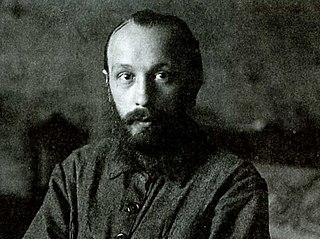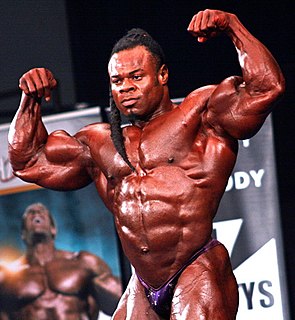A Quote by James L. Brooks
What does it mean for an actor to make a part his own? It means that he takes on what you had intended and starts to put in his own stuff so that it becomes something that could only happen if he played it.
Related Quotes
It becomes 'one's own' only when the speaker populates it with his own intentions, his own accent, when he appropriates the word, adapting it to his own semantic and expressive intention. Prior to this moment of appropriation, the word does not exist in a neutral and impersonal language (it is not, after all, out of a dictionary that the speaker gets his words!), but rather it exists in other people's mouths, in other people's contexts, serving other people's intentions: it is from there that one must take the word, and make it one's own
It’s therapy. It’s just something to do so you’re not lost in your own not-so-nice thoughts, and it’s an opportunity to think about something a lot nicer and to do something that’s with more purpose. So you do it, and you take your passion and you put a lot into it, and at some point you get recognized for it. But that recognition doesn’t mean the man is without his own demons or without his own struggles.
He had the attitude that he could do anything, and therefore so can you. He put his life in my hands. So that made me do something I didn't think I could do.... If you trust him, you can do things. If he's decided that something should happen, then he's just going to make it happen. (Elizabeth Holmes)
There is no such thing as a good influence. Because to influence a person is to give him one's own soul. He does not think his natural thoughts, or burn with his natural passions. His virtures are not real to him. His sins, if there are such thing as sins, are borrowed. He becomes an echo of someone else's music, an actor of a part that has not been written for him.
The only proper, moral purpose of a government is to protect man's rights, which means: to protect him from physical violence - to protect his right to his own life, to his own liberty, to his own property and to the pursuit of his own happiness. Without property rights, no other rights are possible.
Everyone has an equal and absolute right to sovereignty over his own body, his own property, and his own life, and to pursue his own happiness in any way that he chooses. No one has the authority to grant rights to anyone else, because human beings already possess all natural rights at birth. These rights include both personal and economic freedoms, and the only way they can be lost is if someone takes them away by force. The only right that an individual does not naturally possess is the right to violate someone else's liberty.
I may venture to say, loosely, that in Judo there is a sort of counter for every twist, wrench, pull, push or bend. Only the Judo expert does not oppose such movements at all. No, he yields to them. But he does much more than yield to them. He aids them with a wicked sleight that causes the assailant to put out his own shoulder, to fracture his own arm, or in a desparate case, even to break his own neck or back.
By day certainly the combatants have a clearer notion, though even then by no means of all that takes place, no one knowing much of anything that does not does not go on in his own immediate neighborhood; but in a night engagement ( and this was the only one that occurred between great armies during the war) how could anyone know anything for certain?
You have to get beyond your own precious inner experiences. The actor cannot afford to look only to his own life for all his material nor pull strictly from his own experience to find his acting choices and feelings. The ideas of the great playwrights are almost always larger than the experiences of even the best actors.
With only one life to live we can't afford to live it only for itself. Somehow we must each for himself, find the way in which we can make our individual lives fit into the pattern of all the lives which surround it. We must establish our own relationships to the whole. And each must do it in his own way, using his own talents, relying on his own integrity and strength, climbing his own road to his own summit.
I love players like Thurston Moore. I mean, you can put notes down on a sheet of paper, and if you practice and get your chops up, you can play like an Eddie Van Halen or a Steve Vai. But nobody can do what Thurston Moore does; he's his own guy. He talks through his instrument in a language that's all his own.
Ambition! We must be careful what we mean by it. If it means the desire to get ahead of other people - which is what I think it does mean - then it is bad. If it means simply wanting to do a thing well, then it is good. It isn't wrong for an actor to want to act his part as well as it can possibly be acted, but the wish to have his name in bigger type than the other actors is a bad one.



































